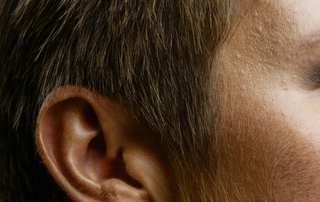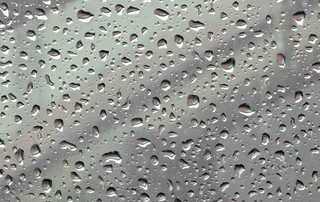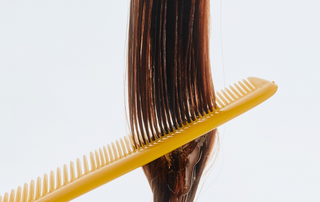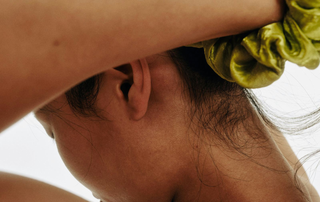Dandruff is a common scalp condition affecting approximately half of the population at some stage of their life. While poor hygiene or dry skin often get the blame, the real causes are often more varied and complex.
Even though anyone can develop dandruff, it’s more frequently seen in men and can be influenced by a range of factors, such as skin type, age and environmental triggers. Some causes are difficult and even impossible to avoid, but the condition can be managed with a medicated scalp shampoo such as Polytar.
In this article, we’ll break down what causes dandruff, some surprising triggers you might be overlooking and why medicated scalp shampoo can make all the difference.
What is dandruff?
Dandruff is a common scalp condition that causes visible white or yellowish flakes on the scalp. While sufferers of dandruff often report feeling embarrassed and self-conscious, it’s generally harmless and treatable. It can be itchy and uncomfortable, which is why treating it with a coal tar shampoo, like Polytar, can make a noticeable difference.
What causes dandruff?
Here are the most common and well-known causes of dandruff:
Malassezia overgrowth
One of the most common causes of dandruff is an overgrowth of Malassezia– a yeast-like fungus that naturally lives on your scalp. In some people, it can grow too much, and start to break down natural scalp oils (sebum) into substances (oleic acid) that irritate the skin, leading to itching, redness, dryness and flakes.
Seborrhoeic dermatitis
Seborrhoeic dermatitis is a more severe form of dandruff that involves red, greasy patches of skin covered with flaky white or yellow scales. It tends to affect areas rich in oil glands, like the scalp, eyebrows and sides of the nose.
Stress and hormonal changes
Stress and hormone changes don’t directly cause dandruff, but they can lead to extra oil production and a more sensitive scalp, which might make flakes and itchiness worse.
Harsh hair products
Shampoos containing strong detergents, artificial fragrances and alcohol can strip the scalp of its natural oils and cause irritation. In severe cases, this creates a cycle of dryness and flaking that worsens over time.
Weather changes
Environmental conditions have a noticeable impact on the scalp. Cold, dry air can lead to skin dehydration, while hot and humid climates can increase oiliness, both of which can promote dandruff.
Dry skin
Cold, dry air lead to skin dehydration, and this dryness can promote flaking.
Surprising triggers of dandruff you might be overlooking
While the biological and environmental causes of dandruff are well known, some triggers are far less obvious. If you’ve tried everything and still struggle with persistent flaking, one of these lesser-known factors might be the problem:
Poor diet
Nutritional deficiencies, especially zinc, B vitamins and essential fatty acids, can affect scalp health. A diet lacking in these essential nutrients may impair the skin’s barrier function, making it more prone to irritation and flaking.
Infrequent washing
While over-washing your scalp can cause problems, not washing it enough can lead to a build-up of oil, sweat and dead skin cells. This can create an environment where dandruff-causing microbes thrive, which is particularly common with people who have naturally oily scalps.
Hair styling products
Gels, hairsprays, dry shampoo and other styling products often leave behind residue that accumulates on the scalp. Over time, this build-up can clog hair follicles, contributing to irritation, dryness and even fungal overgrowth.
Allergies
Dandruff can be caused by a sensitivity to certain hair products. This causes the scalp to become itchy, sore and flaky almost immediately after use.
Wearing hats or helmets
Hats, helmets, headbands and other headgear can trap heat and moisture, especially during the warmer months. This creates the perfect environment for yeast and bacteria to flourish, which can aggravate the scalp and sometimes promote flaking and discomfort.
Solutions that can help treat dandruff
Small habits can have a big impact on your skin health. Try some of these tips to help eliminate and manage dandruff.
Regular washing
Regular washing helps remove oil, flakes, sweat and product build-up. Avoid harsh chemicals and minimise the use of products containing sulphates, parabens and alcohol.
Scalp massages
Gentle scalp massages can improve blood circulation and reduce stress, which may support a healthier scalp environment. When massaging the scalp, be careful to use your fingertips instead of your nails to avoid irritating the skin.
A balanced diet
As we’ve mentioned, nutrition plays a key role in keeping your scalp healthy. A balanced diet supports your scalp’s microbiome and a healthy skin barrier, so try to eat a diet that’s rich in omega-3s, antioxidants and vitamins A, D and E. Some examples include:
-
Fatty fish like salmon, mackerel and sardines
-
Liver
-
Eggs
-
Nuts and seeds
-
Seaweed and algae
-
Berries
-
Dark leafy greens, such as spinach and kale
-
Green tea
-
Dark chocolate (70% or more)
-
Tomatoes
-
Carrots
-
Pumpkin
-
Sweet potatoes
Hydration
Staying hydrated helps maintain your scalp’s skin barrier function. Aim to drink 6-8 glasses of water a day, depending on your individual needs.
Polytar Scalp Shampoo
Polytar is a licensed medicated shampoo indicated to treat dandruff (not just relieve symptoms) and other common scalp conditions that cause discomfort. With its anti-inflammatory, anti-itch and anti-bacterial properties, Polytar Scalp Shampoo helps reduce itching, soothe irritation and slow down excessive skin cell growth.







